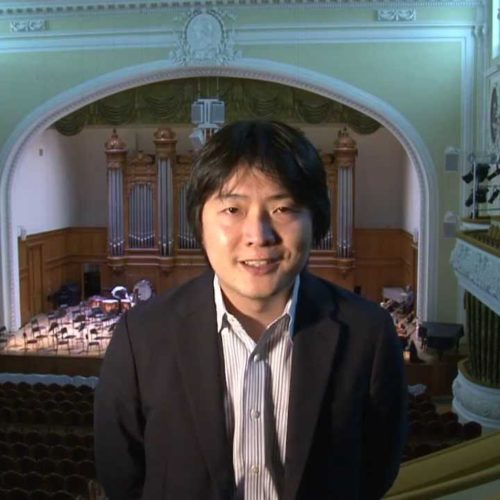The eviscerated Oregon Bach Festival has finally come up with three names for its next artistic director.
They are: orchestra conductor Miguel Harth-Bedoya, choral conductor Craig Hella Johnson and early music scholar Julian Wachner.
I suppose we should wish luck to whoever gets the job, though judging on past performance the ones who got away might be luckier still.
Announcement here.
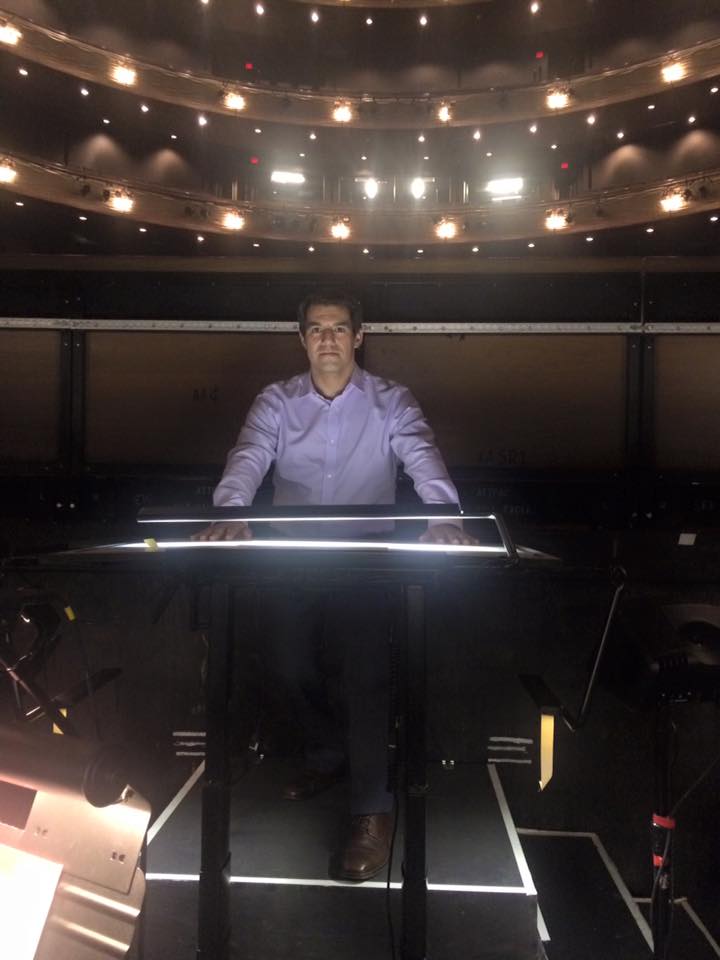
The Pennsylvania voice coach Victoria Hart has posted sad news of the death of her husband, Valery Ryvkin:
Dear Friends and Colleagues, I am so very sad to tell you that my darling husband Valery Ryvkin passed away in his sleep early Wednesday morning. Most of you will not know that he was battling a rare and deadly form of cancer and sadly lost the fight. His passing leaves an enormous hole in my heart, and that of his beloved daughter Amanda Ryvkin and his father Alexander Ryvkin. There is a Russian saying, “many people love music, but music loves very few.” Music adored Valery, and the feeling was mutual. Orchestras threw roses on the stage when he conducted, and singers felt buoyed by his conducting and uplifted by his coaching. His was a unique talent not only for making music, but for imbuing those around him with his robust, deeply felt, and intellectually rigorous approach. And always that cherubic smile and delight in all things lovely and his delicious laugh at all things silly. He will be missed.
Valery Ryvkin was Associate Professor of Voice and Opera at Temple University Boyer College of Music and Artistic Director and Conductor of Temple Opera. He also worked in in Suzhou, China, LA Opera’s Young Artist Program, Queens College, Pittsburgh Opera and more.

Full obituary here.
The latest SlippedDisc/CBSO100 review is from John Gough:
CBSO at Symphony Hall *****
CBSO, Kazuki Yamada, Francesco Piemontesi
The CBSO’s season continued with two blockbuster works, and memorably vivid performances to match. This was an enormously satisfying and exciting evening with a virtuoso orchestra, conductor and soloist.
Brahms 2nd piano concerto is known to all of us. For many of us it has been part of our listening experience since our early years, and we file it away in our mental filing cabinets, along with our opinions of it, and imagine that we know it. But live performances of this vast piece make us experience afresh its enormous scale and ambition, and delight again in its variety of orchestral and chamber textures. This performance with the young Swiss Italian pianist Francesco Piemontesi was so wonderfully alive and in the present that it made me realise that my memories of the piece were less than half of the story.
One of Kazuki Yamada’s gifts is the clarity with which he lays out the structure of everything he conducts, and his long term planning in this concerto made all of its elaborate and poetic decoration part of a rock solid and monumental edifice.
After Elspeth Dutch’s radiant French horn opening solo the first movement moved very swiftly from calm introspection to purposeful movement. There were soaring string lines, urging tremolandos, expert handovers between orchestra and soloist, long arching phrases and exquisite exchanges between solo piano and wind.
Piemontesi’s supreme technical command meant that one could concentrate solely on the musical intention of every phrase. Solo strength alternated with subtle delicacy, and dynamic control. One could abandon oneself to the symphonic argument.
The “tiny wisp of a scherzo” was full bloodedly jubilant and rhythmic at first but then romantic and mysterious as soon as the piano re-entered. There were many beautiful wind contributions along the way, before, unusually, the final instruction in the score ‘sempre piu agitato’ was taken extremely literally, resulting in an exciting and controlled dash to the end of the movement.
Although the tempo of the slow movement was slightly harder driven than performances I have heard, it fitted the overall conception of the piece, and was determinedly unsentimental, with no malingering in Tim Gill’s passionate cello solo. Piemontesi gave us beautiful quiet playing, with skilful pedalling separating the layers of keyboard writing. The blissful recapitulation had barely audible string support supplying a halo to the luminous solo playing as the heavenly trio of piano, oboe and cello returned to the main theme.
The finale followed ‘attacca’ in an exhilarating display of muscular high jinks, swapping between scherzando high spirits and swooning Hungarian episodes, bringing this superb performance of a complex yet lyrical work to a playful and very satisfying conclusion.
Schumann’s Second Symphony is a relative rarity in concert programmes, but under Yamada’s direction this was the most exciting Schumann performance I have ever heard.
The orchestra are playing at the height of their powers at present and this symphony, full of rhythmic vitality and strong contrasts, energy and momentum, gave them every opportunity to display what they are capable of.
Again, the whole work flowed with a sense of inevitability. Even the first movement’s rather dutiful development section where Schumann’s insistent rhythms start to become obsessive was rescued and made to lead inexorably to the recapitulation.
The Scherzo with two trios drew remarkable playing, a true showpiece for the CBSO, the violins fantastically together in ensemble in their athletic, hyper-Mendelssohnian string figuration.
The empathy between orchestra and conductor was very evident, with impressive examples of corporate rubato, all with minimal signalling from the conductor. This sort of trust is rare.
The somewhat wayward slow movement had moments of tear evoking beauty and pathos before the restless Schumann’s finale exploded into life, bringing yet more wonderful ensemble playing. Even the most lyrical wind passages emerged with clarity over the throbbing and restless string undercurrent. The relentless energy faltered as the music collapsed back into the darkness of C minor, the key of the slow movement, before an irresistible cumulative build up led to an ecstatic and triumphant blazing C major end. Yamada looked delighted at the result, and after several returns to the stage ended by climbing into the orchestra and shaking the hands of virtually every musician.
Truly Symphony Hall is witnessing great things at the moment.
John Gough
Kazuki Yamada is principal conductor in Monte Carlo and principal guest conductor in Birmingham.
Some extraordinary confessions are coming out about Olga Lyubimova, the new minister of culture under Prime Minister Mikhail Mishustin.
According to the BBC, she once said in a blog: ‘I simply can’t stand going to exhibitions, museums, opera.’
According to LiveJournal, on which the BBC based its report, she said much worse:
– A friend called for a concert of classical music … And I realized that I just can’t force myself … I began to seriously think about this topic. I found out unexpectedly for myself that I’m not a damn cultured person.
– According to the advice to victims of a rapist: I lay on my back, spread my legs, breathe deeply and even try to enjoy it.
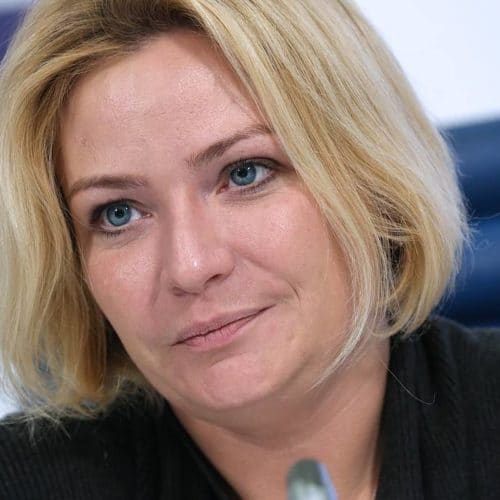
Press release:
On Sunday 1 March 2020, leading American gospel music specialist André J Thomas will conduct the London Symphony Orchestra in their first ever full concert of gospel symphonic music. The evening will bring together the full orchestra, a 400-strong choir comprising the London Adventist Chorale, with LSO Community Choir, Hannah Brine Choirs, Hackney Empire Community Choir, and Milton Keynes Community Choir with guest soloists, NaGuanda Nobles (soprano), Jason Dungee (tenor) and Brandon Boyd (piano).
André J Thomas said: “This concert brings together two forms of music that are indigenous to African Americans: the slave song as spiritual and the gospel song which came after emancipation and grew out of the spiritual. Now we’re putting that in symphonic setting, with full orchestra and choir. This is music of the soul, of a people who were so close to music. It’s music about their lives. As Africans, that’s a crucial part of our expression – in the African village everyone dances and sings. That extended itself to the time of slavery; add the religious element on top, and it creates something incredibly powerful.
Kathryn McDowell, Managing Director of the LSO added: “Every year LSO Sing, the umbrella title for our range of singing projects for vocal enthusiasts of all ages, gets stronger and stronger, with an ever-broadening repertoire. For our Christmas Concert in 2018 we added a gospel element, and received such a wonderful warm response from our audiences and had a great time performing the music that the Orchestra decided it was time to present a full evening with gospel music at the heart. I am delighted that this has come to fruition. It’s a pleasure to welcome André J Thomas to conduct, and a thrill that on stage we have the wonderful London Adventist Chorale under the leadership of Ken Burton, and most of all, that we will be bringing together four community choirs to raise the roof of the Barbican Hall.”
The programme for the evening will be in two parts: opening the evening will be selection of well-known and less familiar spirituals, with André J Thomas’ own composition Gospel Mass – A Celebration of Love and Joy forming the second part of the evening.
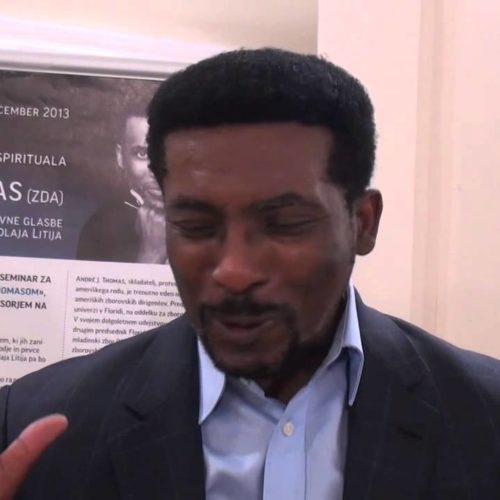
Manchester Evening News has reported that the city’s former head of children’s services during the recently uncovered Operation Augusta grooming scandal was later made a governor at Chetham’s music school.
Pauline Newman was appointed by Chetham’s in 2014 and remained head of safeguarding until last year.
Alun Jones, Principal of Chetham’s School of Music, told the M.E.N: “It is deeply upsetting to hear in the news about the failures of Operation Augusta.
“While this case has no connection to Chetham’s School of Music whatsoever, we know the trauma and life-changing consequences caused by past safeguarding failures.
“Pauline Newman was nominated as a Governor of Chetham’s by Manchester City Council in 2014, and then became chair of the Safeguarding Committee until last year.
“Pauline was one part of a team and school community here at Chetham’s who made enormous strides in implementing world-class safeguarding mechanisms, which were described as impeccable by independent inspectors in 2017.
“It is incredibly difficult now to hear the stories of victims across Manchester who have not been heard. Our thoughts are with all those affected by this case.”

First Tim Ridout in Hamburg.
Now Tabea Zimmermann in Munich.
The German violist, 53, has been named winner of the Ernst von Siemens Music Prize.
It’s worth quarter of a million Euros.
Tabea is the widow of the Israeli conductor David Shallon. She later married the American conductor Steven Sloane, incoming music director of the Jerusalem Symphony Orchestra.
Siemens AG has only recently come clean on the extent of its early enthusiasm for the Nazi regime and its massive use of slave labour in the Third Reich. These facts are worth remembering around the 75th anniversary of the Auschwitz liberation.
A gift is a gift, but it sometimes has history.
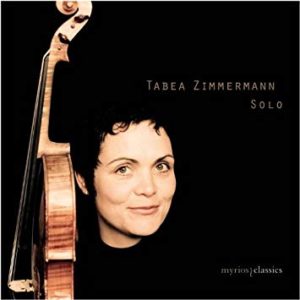
From Tabea Zimmermann’s agency biography:
As a soloist she regularly works with the most distinguished orchestras worldwide such as the Berlin Philharmonic, Orchestre de Paris, London Symphony Orchestra, Israel Philharmonic Orchestra and the Czech Philharmonic. In the season of 2019/2020, Tabea Zimmermann will be Artist-in-Residence of the Royal Concertgebouw Orchestra and her great versatility will be showcased not only in Amsterdam, but also on tour. Following residencies in Weimar, Luxembourg, Hamburg and with the Bamberg Symphony, Tabea Zimmermann was artist-in-residence with the Ensemble Resonanz in 2013/14 and 2014/15…
Tabea Zimmermann has inspired numerous composers to write for the viola and has introduced many new works into the standard concert and chamber music repertoire. In April 1994, she gave the highly successful world premiere of the Sonata for Solo Viola by György Ligeti, a work composed especially for her. The subsequent premieres of this work in London, New York, Paris, Jerusalem, Amsterdam, and Japan attracted great critical and public acclaim. In recent seasons, Tabea Zimmermann has premiered Recicanto for Viola and Orchestra by Heinz Holliger, the viola concerto Über die Linie IV by Wolfgang Rihm, Monh by George Lentz, Notte di pasqua by Frank Michael Beyer, a double concerto by Bruno Mantovani with Antoine Tamestit, and Filz by Enno Poppe with Ensemble Resonanz. She played the premiere of Michael Jarrell’s Viola Concerto at Festival Musica Strasbourg 2017 with the Orchestre National des Pays de la Loire under Pascal Rophé; and subsequent performances with the Vienna Symphony under Ingo Metzmacher, the Orchestre de la Suisse Romande under Pascal Rophé and the Konzerthaus Orchestra Berlin under Mario Venzago.
To mark Hindemith’s anniversary in 2013, Tabea Zimmermann released a highly acclaimed recording of the composer’s complete works for viola on myrios classics. Following the success of her recording of solo works by Reger and Bach with myrios classics in 2009 – for which she received an Echo Klassik prize as Instrumentalist of the Year – she has released three albums with pianists Kirill Gerstein and Thomas Hoppe. Tabea Zimmerman’s artistry is documented on approximately 50 CDs for labels such as Harmonia Mundi, EMI, Teldec, and Deutsche Grammophon. A live recording of her performance on Beethoven’s own viola at the Beethovenhaus Bonn, accompanied by Hartmut Höll, was released by Ars Musici.
Anne-Sophie Mutter has let slip on social media that the New York Philharmonic will be playing the soundtrack for Stephen Spielberg’s film of West Side Story. The conductor is Gustavo Dudamel.
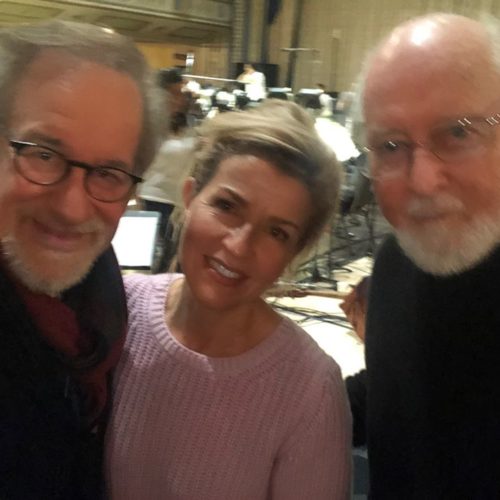
Not that she’s heard it from a reliable source.
Mutter mutters: Great stopover in New York: What a selfie!! Done by Steven Spielberg.
I was allowed to listen a bit to the recording with New York Philharmonic and Gustavo Dudamel for his latest film …
Mark Volpe let it be known last night that he’s retiring as president of the Boston Symphony in 14 months’ time.
He will have served the orchestra by that time for 23 years and there’s no obvious successor in sight.
Volpe handled with great discretion the later years of Seiji Ozawa, the awful interrugnum of James Levine and the inspired appointment of Andris Nelsons.
The next chief will need to keep Nelsons challenged and plan for a more diverse future.
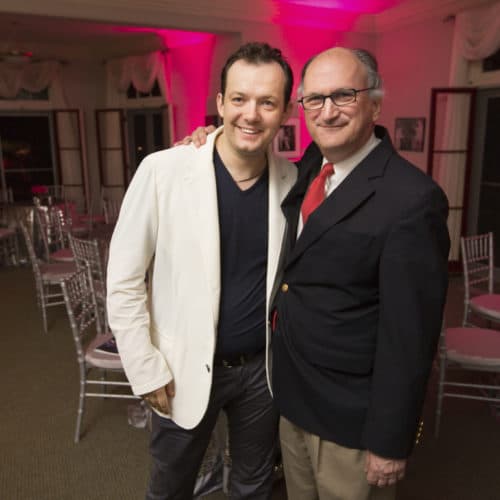
with Nelsons, 2014
The role of Leonore in the Vienna State Opera’s new Fidelio production on February 1 will be sung by the Irish soprano Jennifer Davis, a former member of the Covent Garden training scheme.
This will be her Vienna debut, and her first time singing the role.
toi-toi.
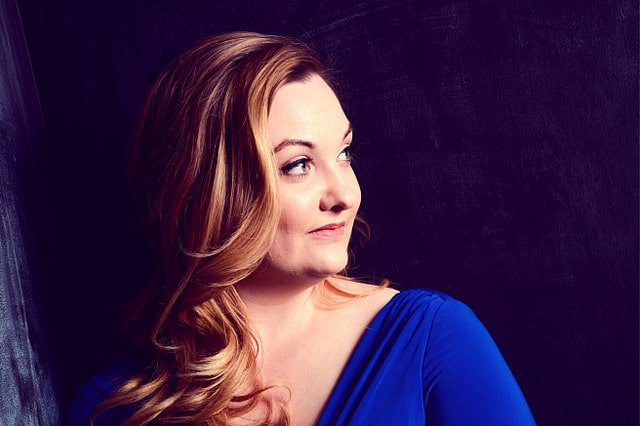
Welcome to the 20th work in the Slipped Disc/Idagio Beethoven Edition
An American musicologist proposed the other day that the best thing we could do for music was to shut down all Beethoven performances in his anniversary year and replace them with new works.
Oh, and here’s one of her esteemed colleagues:
Regardless of whether anyone would pay to hear a year of novelties and divergences, there is an anti-musical line behind this misconception that needs to be tackled head-on. Put simply, if we take Beethoven out of the mix, everything else crumbles to dust. The vast majority of people who go to concerts build their appreciation and understanding of music around the monumental centrality of the Beethoven symphonies, and the vast majority of musicians learned the rudiments of music from the structural security of the sonatas. Take them away, and what’s left?
Look at the history of music and imagine what it might have been without Beethoven. No-one else had the vision, the boldness and the will to liberate music from its pretty classical corsets and shove it into the forefront of public and political attention. No composer until Wagner half a century later has the energy and the stubbornness to transform German music, or until Verdi to shake Italian opera out of torpor and trivia. If Beethoven had not make his breakthrough in the 1790s, Wagner and Verdi would have lacked the foundations for their revolutions and western music would have been a much inferior art.
It’s just as well that I am writing these thoughts in English, since that language presents the perfect analogy. Without the impact of Shakespeare, English would have been less flexible, colourful and lyrical. It’s not just the dozens of everyday expressions that we owe to the Bard: we actually owe him the ability to speak and write more freely, to play with language like plasticine, to discover its deep-buried resources and to release its nobility. That’s what Beethoven does in music.
To eliminate him makes music nonsensical and musicology redundant. That’s how ridiculous the suggestion is.
*
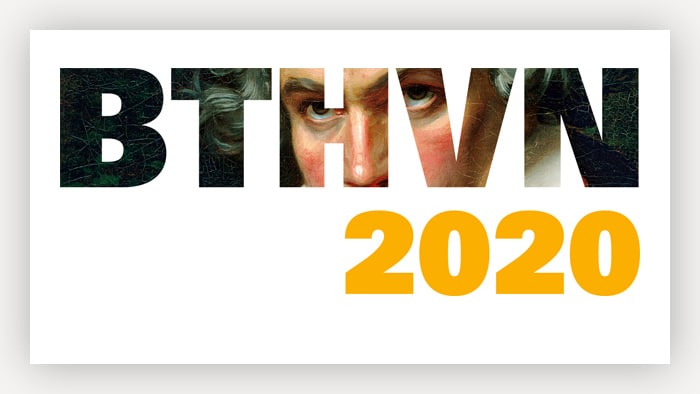
Our Beethoven a Day is the Septet, opus 20
It’s not entirely certain that Beethoven invented the septet form, but he certainly established it with this 40-minute work for clarinet, horn, bassoon, violin, viola, cello and double-bass. Rather than miniaturizing an orchestral sound, he creates an alternative sonority, at once astringent and appealing, in which each instrument has its own palette of colours within the ensemble.
First heard at the concert where Beethoven premiered his first symphony, the symphony was an instant hit, his most steady earner for the rest of his life. Schubert took it as a model for his indelible octet, while the less scrupulous Hummel and Spohr produced slavish imitations. The 3rd movement (of 6) shares the minuet of his 20th piano sonata. A 1959 performance by the Vienna Octet seems incontrovertible in terms of tempo and atmosphere.
The Berlin Philharmonic Octet are altogether more muscular. Joseph Silverstein leads a particularly frisky version in upstate New York.
Leonidas Kavakos and Munich friends in 2019 appear, by comparison, undernourished.
I’m drawn to Gervase de Peyer and the creams of mid-century British musicians. How’s this for a cast?
Melos Ensemble, Gervase de Peyer (Clarinet), Neill Sanders (Horn), William Waterhouse (Bassoon), Emanuel Hurwitz (Violin), Cecil Aronowitz (Viola), Terence Weil (Violoncello), Adrian Simon Beers (Double Bass)



